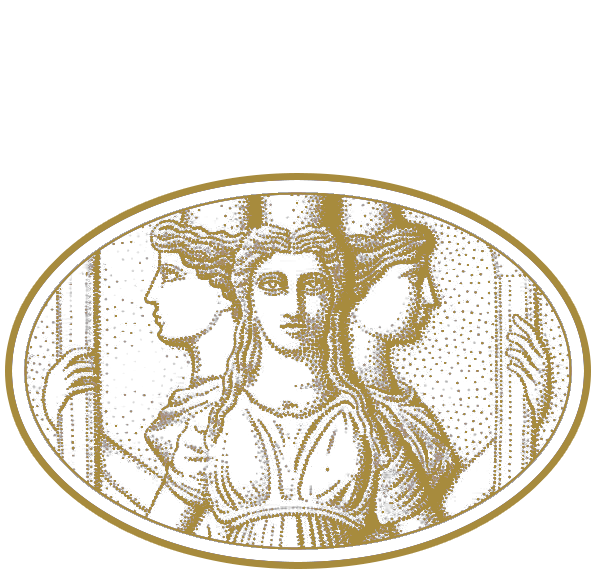Prometheus, Epimetheus and the First Men
The First Humans Encounter Some Problems
When the time came to invent mortal creatures, the younger gods molded their frames from materials that they found within the body of their grandmother, Earth. Then they handed the frames to Prometheus and Epimetheus, two sons of Themis who had sided with the Olympians during the war against the Titans, and commanded them to finish the job. Zeus gave the brothers a bag of talents and tools and told them to equip each of the creatures with a few of these.
Epimetheus suggested to Prometheus that they divide the labor between them. He volunteered to distribute the talents and tools if Prometheus would fix any problems after he was done.
Prometheus should have known better. Themis had named him Prometheus, which meant ‘Fore-Thinker,’ because already at birth she could discern in him a clarity of thought that laid bare the effects of his decisions. Her other son seemed to be just the opposite, however, and so Themis had named him Epimetheus, which meant ‘After-Thinker’.
Nonetheless, Prometheus agreed to the arrangement that Epimetheus proposed, and sure enough, when the job was done Prometheus discovered that Epimetheus had made a grave mistake. For, Epimetheus had distributed everything in the bag—claws, talons, hooves, wings, antennae, fur, carapaces, fins, scales, gills, quills, shells, pincers, antlers, horns, beaks, stingers, tentacles, speed, stealth, camouflage and more—without noticing that there was nothing left for men, who had been last in line.
Poor men! They had nothing with which to clothe their naked flesh, nothing to protect the tender soles of their feet, no way to defend themselves from other animals, or even to flee when they were attacked. Men were surely doomed.
Pitying the feeble creatures, Prometheus slipped into the workshop that Hephaestus and Athena shared and stole all the secrets of their crafts. He shared those secrets with men so that they would be able to weave clothing to keep themselves warm and forge weaponry that gave them an advantage over other animals. Soon, they also learned to make other things that eased their lives: plowshares, harnesses, axes, cooking pots, and sandals.
Prometheus stole something else from the gods’ workshop as well: fire. Without it, knowledge of the gods’ crafts would have been useless.
As the years went by, Prometheus continued to help men. He taught them seamanship and carpentry, astronomy and meteorology, writing and mathematics, medicine and the divinatory arts. And he gave them hope, which kept them going even when everything else had failed.
Men were now on the path to success and were grateful to the gods for what they had. As soon they learned how to raise animals, they established the practice of sacrificing one to the gods every so often, slitting its throat and then placing its carcass upon a fire so that the aroma of its burning flesh would rise to the gods’ noses. Not a scrap of meat, or bone, or hide or entrails did men keep for themselves—everything was burned for the gods.
But Prometheus was discontent with this—why should men do all the work of raising an animal and get no pleasure or use from its remains? He told Zeus that new arrangements would have to be made, and scheduled a meeting between gods and men in the town of Mecone. He also proposed a way of settling the question.
‘The men,’ he said to Zeus, ‘will surely want to offer you a sacrifice at this event. After they’ve killed the animal, let me divide its carcass into two packages—one for the gods and the other for men. You, Zeus, can choose between them.
‘But let’s agree that whichever package you choose will set the standard: forevermore, every sacrifice will be distributed between gods and men in the same manner.’
Zeus raised his eyebrows for a moment but then smiled and nodded in agreement.
When the day came, an ox was killed and Prometheus flayed and butchered the carcass. Before calling Zeus to the altar, he carefully created two parcels. One of them looked disgusting—it was wrapped in the ox’s paunch—but inside there was good, rich meat. The other looked delicious—it was wrapped in a sheet of shining fat—but inside there was nothing but bones.
Zeus arrived. ‘Prometheus, my friend, you’ve done a very poor job of apportioning the sacrifice.’
‘Oh my, you’re right,’ sighed Prometheus, feigning surprise but hugging his craftiness close to himself. ‘Well, take whichever parcel you want.’
And so Zeus, who can never be fooled, chose the fat-covered parcel, in the knowledge that doing so would give him an excuse to impose an eternity of pain upon men. Unwrapping it, he thundered forth,
‘Prometheus, your cunning has finally betrayed you. These men, these upstart little beasts whom you sought to protect, will suffer for your deceit.
‘To start with, I’ll deprive them of fire. It’s true that without fire men will no longer be able to make sacrifices to the gods, but they’ll not be able to cook or smelt metal or warm themselves at their hearths, either. Let’s see how they fare, then.’
Thus began a most dreadful time for men—cold, dark and bereft of all comforts.
